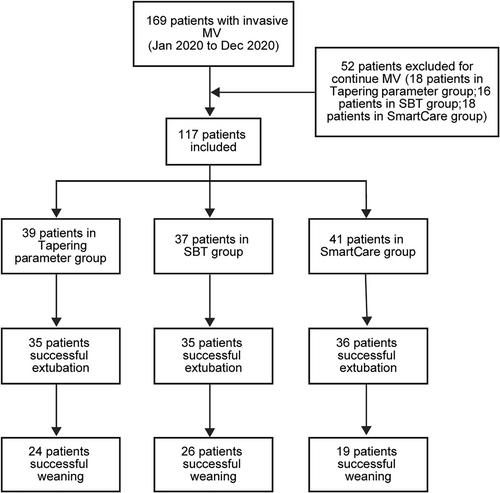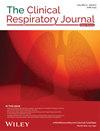Limited data is available regarding the weaning techniques employed for mechanical ventilation (MV) in elderly patients with dementia in China.
The primary objective of this study is to investigate diverse weaning methods in relation to the prognostic outcomes of elderly patients with dementia undergoing MV in the intensive care unit (ICU). Specifically, we seek to compare the prognosis, likelihood of successful withdrawal from MV, and the length of stay (LOS) in the ICU.
The study was conducted as a randomized controlled trial, encompassing a group of 169 elderly patients aged ≥ 65 years with dementia who underwent MV. Three distinct weaning methods were used for MV cessation, namely, the tapering parameter, spontaneous breathing trial (SBT), and SmartCare (Dräger, Germany).
In the tapering parameter group, the LOS in the ICU was notably prolonged compared to both the SBT and SmartCare groups. However, no statistically significant differences were observed among the groups with respect to demographic characteristics, such as age and sex, as well as factors including the rationale for ICU admission, cause of MV, MV mode, oxygenation index, hemoglobin levels, albumin levels, ejection fraction, sedation and analgesia practices, tracheotomy, duration of MV, successful extubation, successful weaning, incidences of ventilator-associated pneumonia, and overall prognosis.
Both the SBT and SmartCare withdrawal methods demonstrated a reduction in the duration of MV and LOS in the ICU when compared to the tapering parameter method.
Chinese Clinical Trial Registry: ChiCTR1900028449



